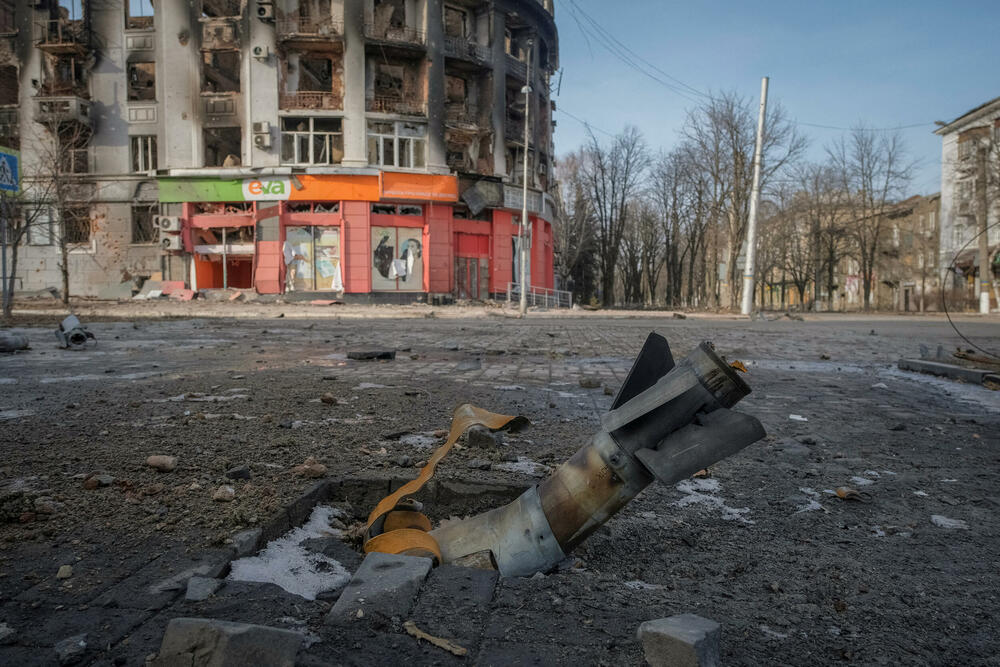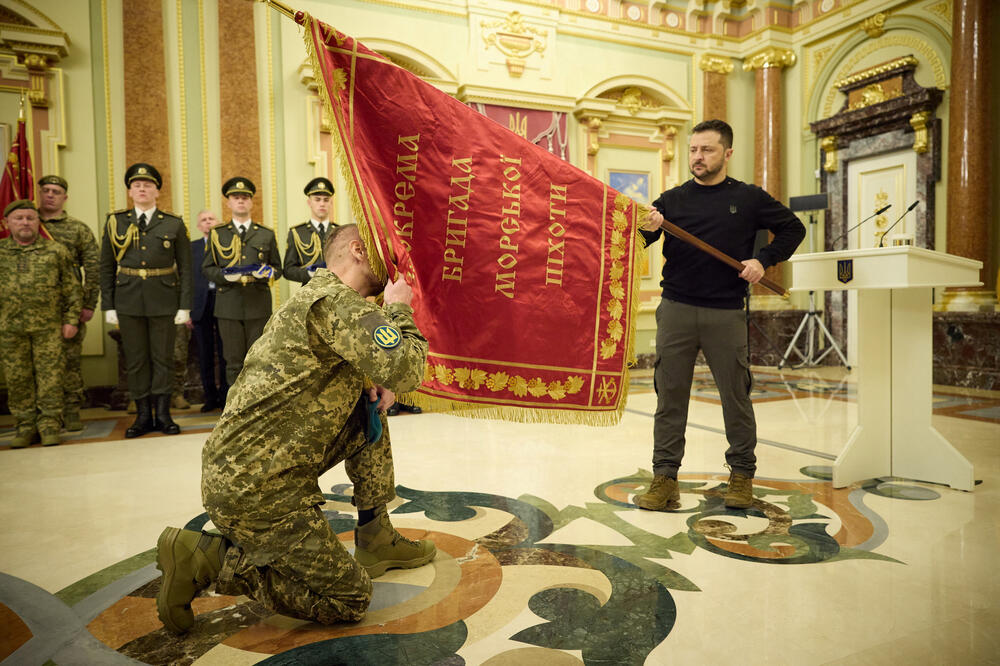For more than 650 days in a row, Ukrainian President Volodymyr Zelensky addressed the nation at least once a day, praising the Ukrainian army and affirming his determination to oppose Russian aggression. The message is "we are making progress" with the aim of maintaining optimism at home and abroad, three sources familiar with his communication strategy told the Financial Times.
That strategy is applied at all levels of government, from ministries and local administrations to military commanders, and includes strict censorship of bad news such as the number of Ukrainian casualties and successful Russian attacks.
However, at a time when Ukraine is not achieving success on the front, this communication strategy, according to FT sources, creates a gap between the presidential administration and the military leadership. It is also no longer sufficient to provide aid from the West, which was also clear yesterday during Zelenskiy's meeting with US lawmakers on Capitol Hill, where he appealed for continued military support to Ukraine, which, according to Reuters, will be met with skepticism by many Republicans. Entering winter, with tens of thousands of dead Ukrainians, a large budget deficit and Russian advances in the east, Zelensky is asking Washington to provide much-needed military and humanitarian aid.

Some Republicans, especially those close to former President Donald Trump, oppose additional aid for Ukraine and raise questions about the goals of the war and the way American money is spent, Reuters points out.
At home, political rivals have begun to openly criticize Zelensky, with Kyiv Mayor Vitaly Klitschko recently accusing him of authoritarianism and even comparing him to Russian leader Vladimir Putin.
Military leaders argue that the huge gap between the official narrative and the situation on the ground is discouraging for both Ukrainians and Western partners. "We need to be more realistic... and in this regard we need to be as brave as we were on February 24, 2022," a person familiar with Zelenski's communication strategy told the FT.
The White House told Congress on December 4 that the government would no longer have funds to arm Ukraine after the end of the year. Congress has approved over $110 billion for Ukraine since the war began, but there have been no new funds since Republicans took control of the House of Representatives in January.
According to US intelligence, "Russia seems to believe that a military standoff during the winter will exhaust Western support for Ukraine" and ultimately give Russia an advantage, Adrienne Watson, spokeswoman for the White House National Security Council, said yesterday.
However, Zelensky sees upbeat messages as the only way to convince skeptics in the West and maintain the confidence of Ukrainian businesses, a key source of tax revenue for the war effort.
"If we are pessimistic, we cannot expect people to continue to develop business in Ukraine and continue to pay taxes and we will not have enough money to continue the fight," one official told the FT.
The differences between the officials in Kiev came to light last month when the head of the Ukrainian armed forces, General Valery Zaluzhnyi, gave a sobering assessment of the situation on the front in an interview with "Ekonomist", saying that the war is at a "standstill". His candor surprised many Ukrainians, and some Western leaders even called Kiev seeking clarification and asking if negotiations were now a priority.

Irina Zolotar, adviser and communications chief to former Ukrainian Defense Minister Oleksiy Reznikov, told the FT that the optimistic strategy initially worked, helping Ukrainians to believe in themselves and their ability to resist the invasion. However, it has now created a confusing narrative in which "expectations are exaggerated and do not correspond to the actual state of affairs," Zolotar said. Instead of calling media reporting that the situation is not so good fake news, the government should show balanced realism, according to Zolotar. "In order for society to stop building towers in the air, and take off its rose-colored glasses... it needs to stop being afraid to speak the truth," she pointed out. "That victory will come with difficulties, that it is a marathon, long and exhausting". She also said that due to the current strategy, the public in the West is wondering why they would give their taxpayers' money at all when Ukraine "will win anyway".
In order for society to stop building towers in the air, and to take off the rose-colored glasses, it needs to stop being afraid to speak the truth, which is that victory will come with difficulties, that it is a marathon, long and exhausting, said Irina Zolotar
Other communications advisers argue that such a strategy prevents Ukrainians and Western public opinion from seeing the urgency of the situation and undermines trust. For example, in the announcements about the battle for Bahmut, which were full of expressions like "fortress Bahmut" and "indomitable Bahmut", information about the "incredible degree of exhaustion, the suffering of thousands of families, the huge number of daily victims" was omitted, said one former employee.
Zelensky never officially acknowledged Ukraine's withdrawal from Bakhmut, and in June the Ministry of Defense presented the continued attack by Ukrainian forces from the edge of the city as proof that the battle was not lost.
News about the war reaches the Ukrainian public through social networks and is transmitted despite censorship, Oksana Romanyuk, director of the Ukrainian Institute for Mass Information, told the FT. "If there is no negative information at all, it will destroy trust in the government."
Romanyuk pointed to the decreasing viewership of the Ukrainian national "Teleton" - an informational program that is broadcast on the main channels, as well as to a recent poll conducted by the American International Republican Institute, which shows a drop in support for Zelensky.
Marina Brilova, a 61-year-old Ukrainian language teacher, said she had not watched "Teleton" since the first days of the invasion, but that she understood the president's need to motivate the nation.
"I am one of those who would like to receive positive news, but it is impossible to live without reality," she told the FT.
Bonus video:




